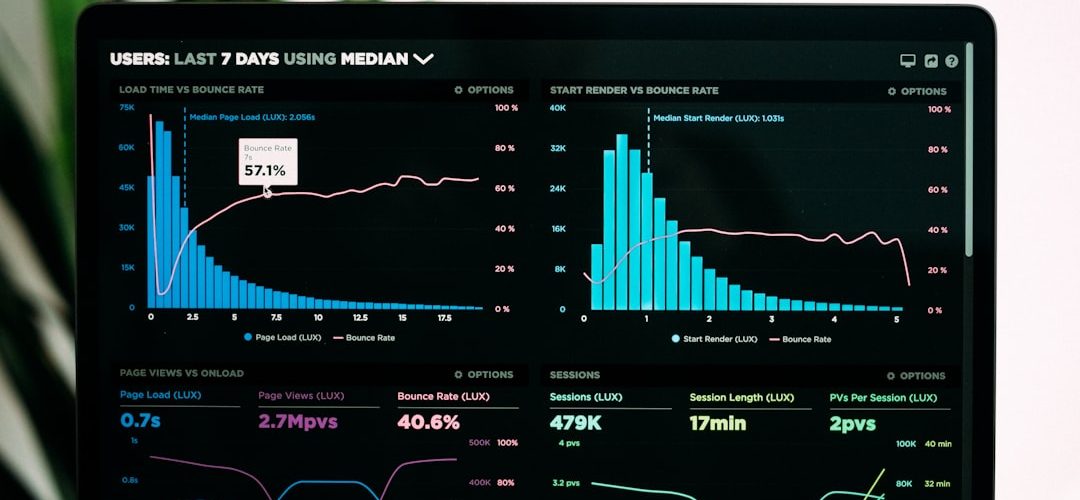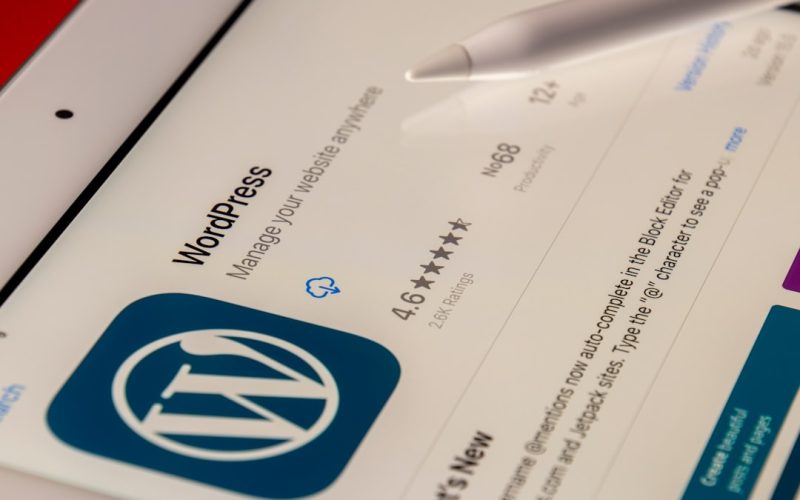As a blogger, I’ve come to realize that monetizing my blog is not just an option; it’s a necessity if I want to turn my passion into a sustainable income source. The digital landscape is filled with opportunities, and understanding the importance of monetization has been a game-changer for me. Initially, I viewed blogging as a creative outlet, a way to express my thoughts and share my experiences.
However, as I delved deeper into the blogging world, I recognized that monetization could provide the financial freedom to pursue my passion full-time. Monetizing my blog has allowed me to invest in better tools, resources, and even education to enhance my skills. It’s not merely about making money; it’s about creating a platform that can support my lifestyle and aspirations.
By generating income through my blog, I can focus more on content creation and less on financial constraints. This shift in perspective has motivated me to explore various monetization strategies, ensuring that my blog not only serves as a creative outlet but also as a viable business.
Table of Contents
ToggleKey Takeaways
- Monetizing your blog is important for turning your passion into a profitable business.
- Choose the right WordPress plugins for monetization to effectively manage ads, affiliate marketing, and digital product sales.
- Implement effective ad placement strategies to maximize revenue without compromising user experience.
- Utilize affiliate marketing on your WordPress blog to earn commission from promoting other people’s products.
- Create and sell digital products with WordPress to diversify your revenue streams and cater to your audience’s needs.
Choosing the Right WordPress Plugins for Monetization
Streamlining E-commerce with WooCommerce
For instance, I’ve found that using plugins like WooCommerce has streamlined the process of selling products directly from my site. This plugin allows me to manage inventory, process payments, and create a seamless shopping experience for my visitors.
The Power of Affiliate Marketing with ThirstyAffiliates
Additionally, I’ve discovered the power of affiliate marketing plugins such as ThirstyAffiliates. This tool helps me manage and cloak my affiliate links, making them more appealing and trustworthy to my audience.
Optimizing for Monetization and User Experience
By choosing the right plugins, I can optimize my blog for monetization while ensuring that my readers have a positive experience.
It’s essential to regularly evaluate the plugins I use, as technology evolves and new tools emerge that can further enhance my monetization efforts.
Implementing Effective Ad Placement Strategies

One of the most effective ways I’ve found to monetize my blog is through strategic ad placement. Understanding where to position ads can significantly impact their performance and, consequently, my revenue. Initially, I experimented with various placements, such as in-content ads, sidebar banners, and header ads.
Over time, I learned that placing ads within the content itself often yields higher engagement rates. Readers are more likely to notice ads when they are seamlessly integrated into the flow of the article. Moreover, I’ve discovered the importance of balancing ad placement with user experience.
While it’s tempting to fill every available space with ads, I’ve found that too many can overwhelm visitors and drive them away. Instead, I focus on quality over quantity, ensuring that the ads I display are relevant to my audience’s interests. By carefully analyzing click-through rates and user feedback, I continuously refine my ad placement strategies to maximize profitability without compromising the integrity of my blog.
Utilizing Affiliate Marketing on Your WordPress Blog
| Metrics | Description |
|---|---|
| Affiliate Sales | The total number of sales generated through affiliate marketing links on the WordPress blog. |
| Click-Through Rate (CTR) | The percentage of blog visitors who click on affiliate links compared to the total number of visitors. |
| Conversion Rate | The percentage of visitors who make a purchase after clicking on an affiliate link. |
| Average Commission | The average amount earned in commission for each affiliate sale. |
| Top Performing Products | The affiliate products that generate the most sales or revenue on the WordPress blog. |
Affiliate marketing has become one of my primary revenue streams, and I’ve learned how to effectively integrate it into my WordPress blog. By partnering with brands that align with my niche, I can promote products and services that genuinely resonate with my audience. This authenticity is crucial; when I recommend something I believe in, it builds trust with my readers and increases the likelihood of conversions.
To make the most of affiliate marketing, I focus on creating high-quality content that naturally incorporates affiliate links. For example, writing product reviews or how-to guides allows me to provide value while subtly promoting affiliate products. Additionally, I track the performance of each affiliate link using analytics tools to understand which products resonate most with my audience.
This data-driven approach enables me to refine my strategy continually and maximize my earnings through affiliate marketing.
Creating and Selling Digital Products with WordPress
Creating and selling digital products has been a rewarding venture for me as a blogger. With platforms like WordPress making it easy to set up an online store, I’ve been able to leverage my expertise and create valuable resources for my audience. Whether it’s eBooks, printables, or online workshops, digital products allow me to share knowledge while generating income.
The process begins with identifying what my audience needs or desires. By engaging with them through surveys or social media interactions, I gather insights into what types of products would be most beneficial. Once I have a clear idea, I invest time in creating high-quality content that meets those needs.
The beauty of digital products is that they require minimal overhead costs; once created, they can be sold repeatedly without additional expenses. This scalability has made digital products a cornerstone of my monetization strategy.
Leveraging Sponsored Content and Paid Reviews

Partnering with Brands
In addition to affiliate marketing and digital products, I’ve found that partnering with brands through sponsored content and paid reviews can significantly boost my blog’s income. Brands are often looking for authentic voices to promote their products or services, and as a blogger with a dedicated audience, I can provide that exposure.
Creating Authentic Sponsored Content
Creating sponsored content requires a delicate balance; it’s essential to maintain authenticity while fulfilling the brand’s requirements. I strive to craft engaging posts that provide value to my readers while subtly incorporating the brand’s message.
Disclosing Sponsored Content
Transparency is key; I always disclose sponsored content to maintain trust with my audience. By doing so, I not only comply with regulations but also foster a genuine connection with my readers.
Building and Selling Online Courses and Membership Sites
As I’ve grown as a blogger, I’ve recognized the potential of building online courses and membership sites as lucrative monetization avenues. Sharing knowledge through structured courses allows me to connect with my audience on a deeper level while providing them with valuable skills or insights. The process begins by identifying topics where I have expertise and where there is demand within my niche.
Creating an online course involves careful planning and execution. I focus on delivering high-quality content through engaging videos, downloadable resources, and interactive elements. Additionally, membership sites offer an opportunity for recurring revenue by providing exclusive content or community access for a monthly fee.
This model not only generates income but also fosters a sense of belonging among members who share similar interests.
Utilizing Email Marketing to Drive Blog Profits
Email marketing has proven to be an invaluable tool in driving profits for my blog. Building an email list allows me to connect directly with my audience and nurture relationships over time. By offering valuable content or incentives such as free resources in exchange for email sign-ups, I’ve been able to grow my list significantly.
Once I have subscribers on board, I focus on delivering consistent value through newsletters and targeted campaigns. Whether promoting affiliate products, digital goods, or upcoming courses, email marketing enables me to reach an engaged audience ready to take action. Additionally, segmenting my email list based on interests or behaviors allows me to tailor messages for maximum impact, ultimately driving higher conversion rates.
Optimizing Your Blog for SEO to Increase Revenue
Search engine optimization (SEO) has become a critical component of my blogging strategy as it directly impacts traffic and revenue potential. By optimizing my blog for search engines, I can attract organic traffic from users actively searching for information related to my niche. This influx of visitors increases the likelihood of conversions, whether through ad clicks or product sales.
To optimize my blog effectively, I focus on keyword research and on-page SEO techniques such as crafting compelling meta descriptions and using header tags strategically. Additionally, creating high-quality content that answers users’ questions helps establish authority in my niche while improving search rankings. Regularly updating old posts with fresh information also contributes to maintaining relevance in search results.
Tracking and Analyzing Blog Performance for Maximum Profitability
To ensure that my monetization efforts are effective, tracking and analyzing blog performance is essential. Utilizing tools like Google Analytics allows me to gain insights into visitor behavior, traffic sources, and conversion rates. By understanding which strategies yield the best results, I can make informed decisions about where to focus my efforts.
I pay close attention to metrics such as bounce rates and average session duration to gauge user engagement. Additionally, tracking revenue generated from different monetization methods helps me identify which avenues are most profitable. This data-driven approach enables me to refine my strategies continually and optimize for maximum profitability over time.
Scaling Your Blog Business for Long-Term Success
As I look toward the future of my blogging journey, scaling my blog business has become a priority for long-term success. This involves diversifying income streams beyond what I currently have in place while also exploring new opportunities for growth. Collaborating with other bloggers or influencers in my niche can open doors to new audiences and potential partnerships.
Investing in professional development is another crucial aspect of scaling my blog business. Whether through courses or networking events, continuous learning helps me stay ahead of industry trends and refine my skills further. By adopting a growth mindset and remaining adaptable in an ever-changing digital landscape, I’m confident that I can build a sustainable blogging business that thrives for years to come.
In conclusion, monetizing a blog requires strategic planning and execution across various avenues—from choosing the right plugins to leveraging email marketing effectively. By understanding the importance of each aspect of monetization and continuously refining my approach based on data-driven insights, I’ve been able to transform my passion for blogging into a profitable venture that supports both creativity and financial stability.
If you’re interested in learning more about how to improve your website’s credibility and attract more visitors, you may want to check out this article on how to get Google star ratings for your website. Having positive reviews and ratings can greatly impact your online presence and help you stand out from the competition. It’s just one of the many ways you can optimize your website for success.
FAQs
What is blogging?
Blogging is the act of writing and publishing content on a website, typically in a conversational or informal style. Bloggers often share their thoughts, experiences, and expertise on a particular topic.
What is WordPress?
WordPress is a popular content management system (CMS) that allows users to create and manage their own websites and blogs. It offers a range of customizable themes and plugins, making it a versatile platform for bloggers.
How can you make money blogging with WordPress?
There are several ways to make money blogging with WordPress, including displaying ads, affiliate marketing, sponsored content, selling digital or physical products, and offering services such as consulting or coaching.
What are some tips for successful blogging with WordPress?
Some tips for successful blogging with WordPress include choosing a niche topic, creating high-quality and engaging content, optimizing for search engines, engaging with your audience, and promoting your blog through social media and other channels.
Is it possible to make a full-time income from blogging with WordPress?
Yes, it is possible to make a full-time income from blogging with WordPress. Many bloggers have successfully turned their blogs into profitable businesses through various monetization strategies and dedication to growing their audience.




